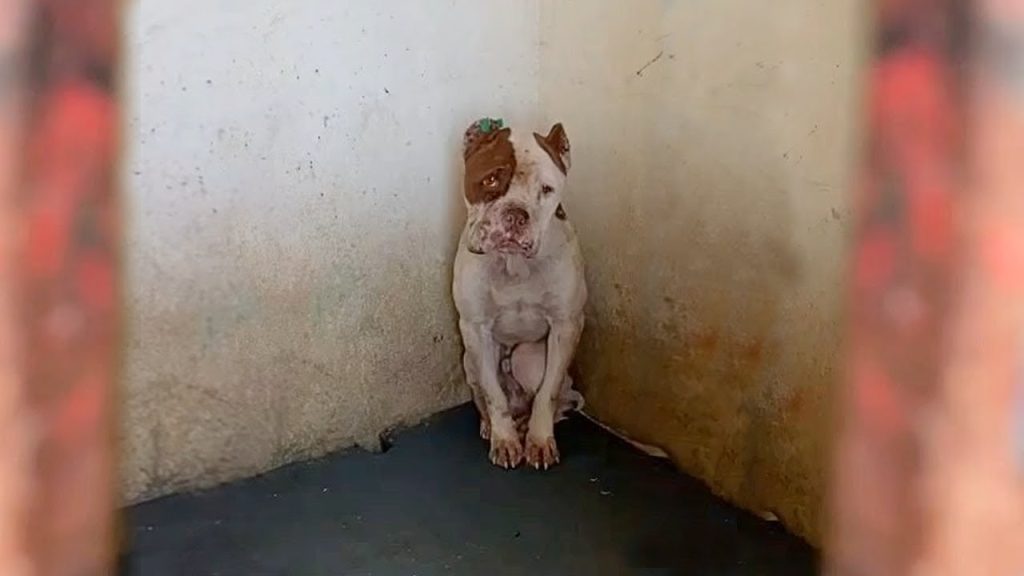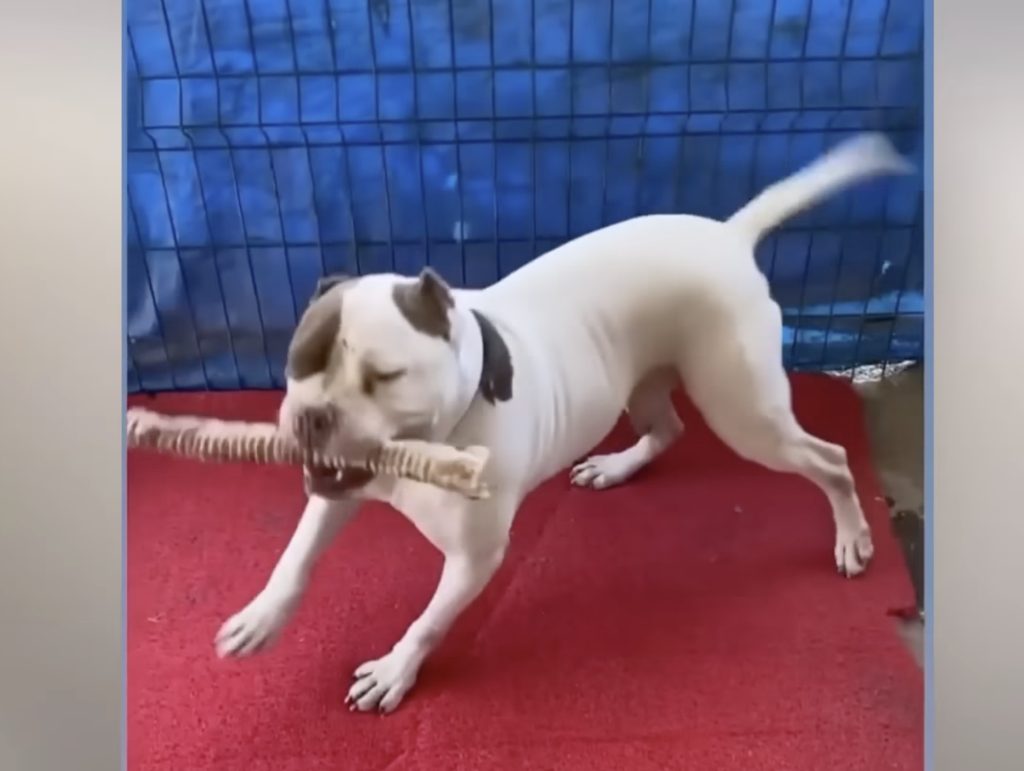When rescuers first found Ozgur, no one could believe he was still alive. He was locked away in a dark, filthy space that reeked of neglect, barely holding on to life. His frail body trembled with every breath, his ribs and bones pressing sharply against his paper-thin skin. Every movement looked painful. His eyes—once full of life and trust—were now clouded with sorrow and silent resignation. It was as if he had accepted that kindness no longer existed in the world. Yet, beneath all that pain, there was still a tiny spark, a fragile whisper of hope that refused to die.

When he was rescued, his condition was critical. He was severely malnourished, his wounds deep and inflamed from months, perhaps years, of being left untreated. His fur was matted and patchy, and his body bore the marks of long-term suffering. The rescuers gently lifted him, speaking softly so he wouldn’t be frightened. They knew that even the smallest sound could startle him, so they handled him with the care one gives to something delicate and precious. For the first time in a long while, someone looked at Ozgur not with disgust or pity—but with compassion.
At the clinic, the veterinary team immediately began to work. They moved quickly yet carefully, aware that his body was hanging by a thread. His wounds were cleaned with warm antiseptic water while soft hands comforted him through the pain. He was placed on IV fluids to rehydrate him, and antibiotics were administered to fight the infections spreading through his body. Because he was dangerously underweight, the team devised a gentle feeding plan—tiny meals throughout the day that would nourish him slowly, without overwhelming his fragile system. Every bite mattered. Every drop of water was a step toward life.
Days passed in a blur of quiet effort and steady healing. The staff would often whisper his name—“Ozgur”—as if reminding him that he mattered. He began to recognize those voices, the soft tone of care, the rhythm of footsteps that meant safety was near. For the first time, his tail gave a faint, uncertain wag. It wasn’t much, but to his rescuers, it was everything. It meant that hope had taken root.
As the weeks went by, Ozgur’s body began to respond to the love and care surrounding him. His wounds started to close, his fur grew back in soft patches, and his eyes—those beautiful, soulful eyes—began to shine again. He was no longer just surviving. He was healing. The clinic became his safe haven, a place where he could rest without fear. Yet, everyone knew he needed more than medicine; he needed a home, someone who would help him learn to trust again.
When he was finally well enough to leave the clinic, one of his rescuers offered to foster him. The day he walked out of the vet’s doors was monumental. It was as though he was stepping into a new life—one filled with sunlight, soft blankets, and gentle voices. Still, he was cautious. Every sound made him flinch, every shadow reminded him of where he had come from. But his foster mom was patient. She never forced him to do anything, only offered quiet comfort and unconditional love.
At first, Ozgur would hide in the corner, observing everything in silence. He didn’t know what toys were or why people laughed. When his new mom reached out her hand, he hesitated, then slowly leaned forward to sniff. Over time, those small moments of trust grew stronger. He started following her around the house, wagging his tail shyly whenever she looked at him. His transformation was subtle but extraordinary—like watching a wilted flower begin to bloom after a long, harsh winter.
One day, he discovered the joy of play. It began with a small rubber ball. His mom rolled it gently across the floor, and to her surprise, Ozgur took a few hesitant steps toward it. Then, with a spark of curiosity, he nudged it with his nose. The ball rolled back, and for the first time in his new life, he barked—a soft, playful sound that filled the room with warmth. That moment marked the true beginning of his recovery, not just of body, but of spirit.
From then on, Ozgur became a different dog. He loved being outside, feeling the grass under his paws and the breeze against his fur. He chased butterflies, wiggled with joy when his mom came home, and greeted every morning as if it were a gift. His tail, once limp and lifeless, now wagged freely, a perfect rhythm of happiness. He even started sleeping on his back—an unspoken sign of complete trust and comfort.

Ozgur’s story became a reminder of what patience and love can accomplish. He had been on the brink of giving up, yet compassion gave him another chance. The kindness of strangers had transformed his world, proving that even the deepest wounds can heal when met with care.
Today, Ozgur is unrecognizable from the frightened creature he once was. His coat gleams with health, his eyes sparkle with affection, and his playful spirit fills his home with laughter. He spends his days chasing toys, rolling in the grass, and curling up next to his mom on the couch. Their bond is beautiful and unbreakable—a testament to the power of second chances.
Every time she looks at him, she’s reminded that love truly saves lives. And every time he curls up beside her, sighing softly in his sleep, it’s clear that he knows he’s finally home.
Ozgur’s journey from despair to joy is not just about one dog’s recovery—it’s about the resilience of life itself. It’s about how kindness can mend what cruelty tried to destroy, how patience can bring back trust, and how love can rewrite even the saddest of stories. His transformation stands as a living message to everyone who believes that every soul, no matter how broken, deserves to be seen, cared for, and loved.
Ozgur’s story will always remind us that hope is never truly lost. Sometimes, it just needs someone to reach out a hand, open a door, and whisper, “You’re safe now.”





